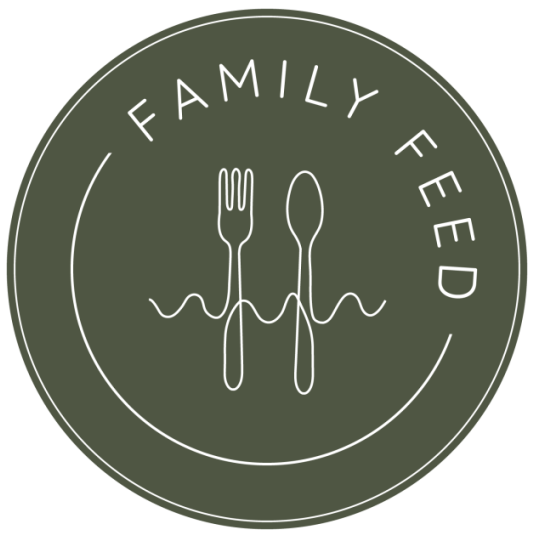Over the last seven months I have been exploring the theme of rest in parenthood with a growing curiosity. And now I hope to invite you to pause and think about yourself and your needs. Because in a world that keeps parents locked in a belief system that tells us we have to come last, I hope to remind us that we deserve to rest too. I want to invite you to a rest visualisation at the end of this article.
Rest is resistance
In early 2022 I started following Tricia Hersey’s work via The Nap Ministry. In their own words TNM says: We examine the liberating power of naps. We believe rest is a form of resistance & reparations.
It was around this time that I started to question some things I believed about rest. Hearing Tricia Hersey articulate her beliefs on the subject planted a seed in my own thinking. That seed grew into curiosity. Now that has become a daily tug of war between the parts of me that still believe I can not rest and the wiser, softer, liberated self that knows: I must rest because I can’t pour from an empty cup.
Guilt for resting
Last September our eldest child started school and in the first week of term I suddenly found myself with the first child free/work free day in years. I went for a swim and it was glorious. After my swim I went to a coffee shop and I spent time crocheting. I drank coffee, people watched and generally enjoyed myself. But suddenly it was time to pick the children up and almost instantly I became overwhelmed by a sense of guilt.
Guilt for doing nothing productive. This guilt wasn’t fleeting either it stayed with me for the rest of the day and night. I felt it in my stomach and I felt annoyed with myself for not doing something more with my time. In the days that followed I was really interest in that experience. What had led me to hold so much guilt over something as simple as taking time for myself?
It was around that time that I started to question my belief system when it came to rest, parenthood, and actually, what it meant to be a good person. After all, society merits us on what we can get done in a day. Now more than ever Tricia Hersey’s words resonated.
Rest is limited in parenthood.
From the moment our babies arrive in the world and forever after there is a busyness to life that often disrupts our ability to rest. I am ever curious about the blueprint that we work from as parents. How much of our belief about our ability to rest is based on a broken blueprint?
We have inherited a narrative that tells us rest is bad. Society judges parents who stop and listen to their needs. We are told to judge people based on their productivity and output.
As parents we juggle and struggle through all of the responsibilities that complicate our modern lives. So often it is our needs that sit at the bottom of the pile. How many times have I thrown together a sandwich at 2pm because I haven’t stopped to eat yet, despite having better choices in the fridge? How many times have I said yes to another commitment when I am sinking in the ones I already have? Too often as parents our needs are forgotten and overlooked by us.
We can’t pour from an empty cup
I talk a lot about our energy being like the contents of a cup. As we pour from our cup we give our energy and capacity out to the world. Family, friends, work, chores, school, responsibilities, community, neighbours, appointments… the list is endless. With each moment that sees us pouring from our cup I ask us to visualize that cup emptying. Over time, if we keep pouring and not restoring, we drain our cup. And we cannot pour from an empty cup.
Of course I don’t want to show up differently in my life. I love my children and my family and my work and my friends and I choose to put my energy there for a reason. But it doesn’t have to be one or the other. We can give out and give back. We can invite rest in our day to day. We can welcome new beliefs and champion a bit more balance right now.
I want to invite parents to think and find ways to fill their own cups so that they can pour and restore long into the future. How we fill our cups is unique to us all. What you need is not what I need. And so a connection to our own needs is an essential part of this process. We must pay attention to our needs too.
But in order for this to happen, on a meaningful level, we might have to disrupt the beliefs that we hold around the theme of rest.
Disrupting our beliefs
We have to question our beliefs about our worthiness for rest. We have to get curious about the stories we have been told about rest. If our blueprint and society has told us that rest is not something to celebrate then it might be difficult for us to invite rest into our lives.
We have to disrupt that thinking and challenge those ideas. So that we can celebrate and welcome rest not just for ourselves but for our children, so that they inherit a better blueprint.
In her book, rest is resistance. Trisha Hersey speaks of rest as a vital part of our survival. She writes:
I believe rest, sleep, naps, daydreaming and slowing down can help us all wake up to see the truth of ourselves.
Rest is a healing portal to our deepest selves. Rest is care. Rest is radical.
Rest visualisation
I invite you to take part in a ten minute rest visualisation. This guided visualisation is an audio and can be accessed below. I advise you to sit or lie down while you listen and do nothing else if you can. It’s ideal if you can do this when you have 10-15 minutes on your own without any distractions. Stay comfortable and take care of yourself.
Packing your own bag
Once you have completed the guided visualisation take some time to sit and think/write about your own needs. Taking this time to think about yourself is similar to the act of packing your bag for your journey.
There are no wrong answers and you can come back to these again and again. Or you can ask more/different questions as a way of extending the practice of listening to your needs.
Ask yourself:
- When I am rested the benefits are…
- I can invite moments of rest today by…
- Today I need…
- In the busiest moments throughout my day I usually feel…
- In the busiest moments throughout my day I want to feel…
A new blueprint
I mentioned that my relationship with rest is like a tug of war because I don’t want to give the impression that I have this figured out. Rewriting that blueprint might be a journey that takes a lifetime. I may need to pack my bag of rest every day.
There will continue to be moments when rest feels impossible. But in each new moment I am reminded that simple, repeatable acts of rest will play out long after that moment. And in that spirit resting, restoring, breathing, taking five, saying no, saying yes, asking why, having a nap, sitting still, moving, listening to music, going for a swim – all of these moments and many more will allow me to pour generously from a cup that overflows.



